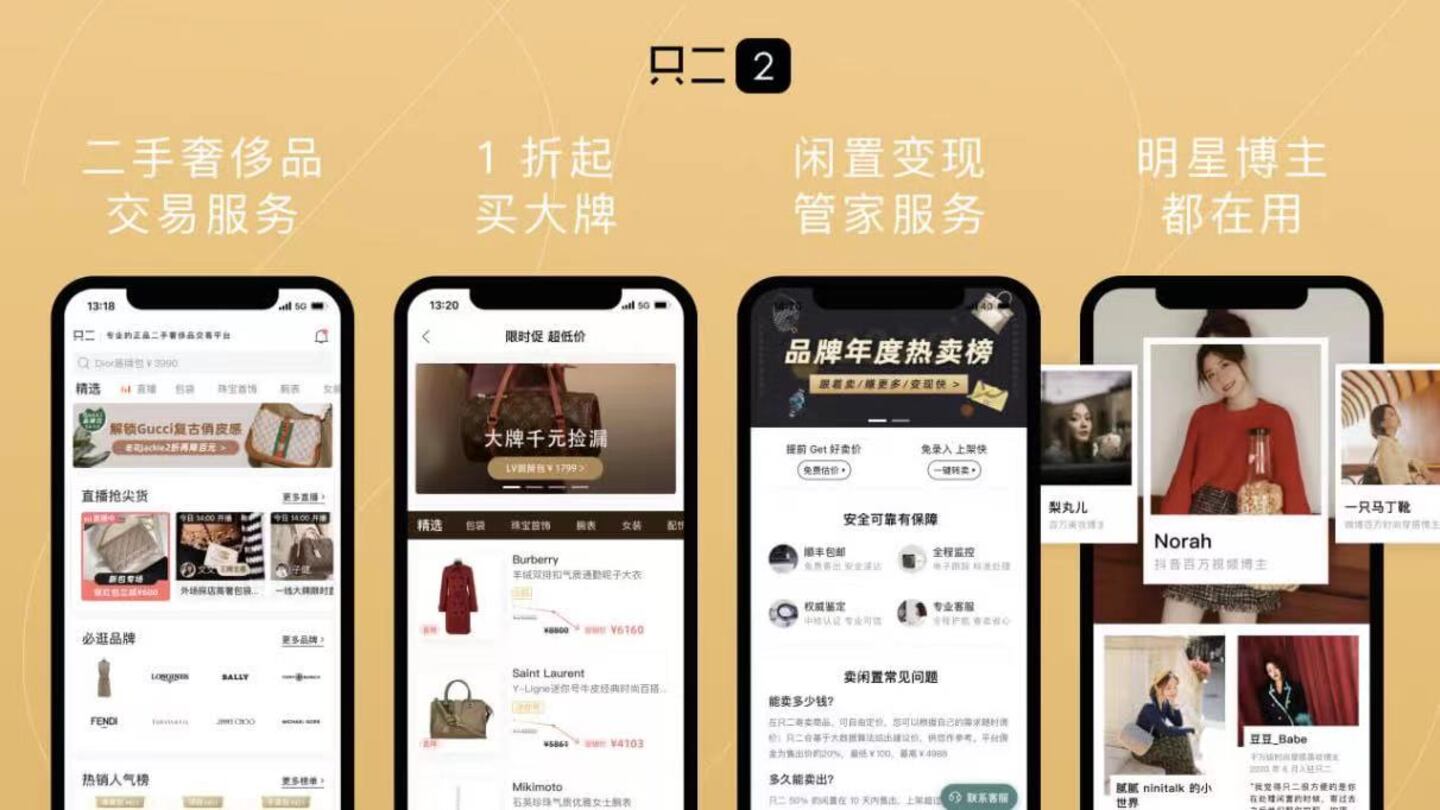
The Business of Fashion
Agenda-setting intelligence, analysis and advice for the global fashion community.

Agenda-setting intelligence, analysis and advice for the global fashion community.

Chinese luxury resale platform, GoShare2, has raised “tens of millions of US dollars” in Series C financing, led by Enlight Growth Partners, according to Chinese tech and financial media outlet, 36Kr. The exact amount was not disclosed.
The Shanghai-based company was founded in 2016 and initially focused on reselling ready-to-wear via a procurement model, but soon expanded into other categories, including bags, jewellery, watches and shoes, shifting to the consignment model it retains today. Sellers set their own prices for goods and, in 2020, the platform’s gross merchandise volume (GMV) recorded a 300 percent year-on-year growth.
According to founder, Zhutai Niqi, the platform has a stable group of buyers and sellers, with 70 percent of goods coming from existing sellers and 80 percent of GMV contributed by consumers who have shopped on the platform previously.
China’s luxury resale market is still in its infancy, and in total saw 17.3 billion yuan ($2.69 billion) in sales last year, compared with nearly 346 billion yuan ($53.71 billion) in sales of new luxury products in 2020, according to data from Bain.
The Future of Fashion Resale Report — BoF Insights
BoF’s definitive guide to fashion resale, covering the evolution of the market, its growth and upside, consumer behaviours and recommendations for crafting a data-driven resale strategy. To explore the full report click here.
The Future of Fashion Resale is the first in-depth analysis to be published by the BoF Insights Lab, a new data and analysis unit at The Business of Fashion providing business leaders with proprietary and data-driven research to navigate the fast-changing global fashion industry.
With consumers tightening their belts in China, the battle between global fast fashion brands and local high street giants has intensified.
Investors are bracing for a steep slowdown in luxury sales when luxury companies report their first quarter results, reflecting lacklustre Chinese demand.
The French beauty giant’s two latest deals are part of a wider M&A push by global players to capture a larger slice of the China market, targeting buzzy high-end brands that offer products with distinctive Chinese elements.
Post-Covid spend by US tourists in Europe has surged past 2019 levels. Chinese travellers, by contrast, have largely favoured domestic and regional destinations like Hong Kong, Singapore and Japan.